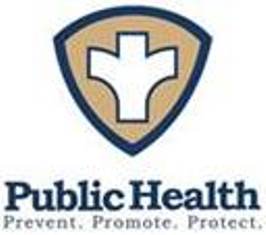As veterinary professionals, it is part of our job to report any animal bite in a person / client at our practice to the local health department where the person resides because of the risk of rabies. The Somerset County Department of Health (SCDOH) has developed a comprehensive Record of Animal Bite Form that we have been notified to use in accordance with New Jersey Revised Statutes (N.J.R.S.) 26:4-78 through 95.

Somerset County Department of Health
As per their notification, the purpose of this form is to obtain all pertinent information regarding the animal bite in order to initiate a rabies control investigation in an expedient manner. The above referenced statutes address rabies control and mandate that all bites and exposures to humans and animals be reported to the local department of health, which serves as the lead agency for rabies control activities.
Rabies explained:
Rabies is a viral infection of the central nervous system (brain and spinal cord) that can affect all warm-blooded animals. The virus is excreted in the saliva of an infected animal (usually a raccoon, fox, skunk, groundhog, dog or cat) and is transmitted by a bite or by contamination of open (i.e., bleeding within the past 24 hours) wounds or mucous membranes with saliva or central nervous system tissue (brain and spinal cord) from an infected animal. Rabies in humans can be prevented by the administration of rabies immune serum and vaccine after a bite or exposure from a known or suspect rabid animal has occurred. Once signs and symptoms of illness appear (usually 2-12 weeks following the bite), there is no cure or treatment for the disease.
The SCDOH suggests these procedures to follow should an animal bite occur:
1. Wash animal bite wounds thoroughly with soap and water as soon as possible after the bite. Contamination of open cuts or scratches with saliva of potentially rabid animals should also be washed off immediately.
2. If bitten by an owned animal, obtain the owner’s address and telephone number. In case of bites from wild or stray animals, if it can be done safely, try to capture the animal so that it can be observed or tested for rabies. Call your local animal control officer for assistance.
3. Consult a physician as soon as possible.
Furthermore, the SCDOH advises that biting dogs and cats should be confined for rabies observation by the local department of health for a period of 10 days following the bite. If a dog or cat had rabies virus in its saliva at the time of the bite, it will become very ill with rabies within a few days and can be sacrificed and tested to verify the presence of the disease. Dogs and cats showing signs of rabies at the time of the bite may be sacrificed and tested immediately. Other domestic animals, i.e., horses, cattle, goats, etc. may be confined for observation for 10 days if they are healthy at the time of the bite.
Signs of rabies in animals include loss of appetite, fever, restlessness, irritability, progressing to either frank aggressiveness and/or paralysis and difficulty walking, unusual crying or howling, drooling of saliva, and eventually seizures, coma, and death. The progression of the disease is rapid, with domestic animals usually dying within one to five days of onset of illness. At the first signs of any such illness in an animal confined for rabies observation, the local health department should be notified at once.
There is no safe rabies observation period for wild animals. Raccoons, skunks and foxes may have the virus in their saliva for a week or longer before showing signs of illness. If any of these animals are seen acting unusually, showing signs of aggression, and out during daylight hours, they should be considered as potentially rabid. Stay away from these animals and do not let pet dogs, cats, or other animals come in contact with them. Report to the local department of health any bites or exposures from these animals to your pets, livestock, or yourself.
Please direct all questions and/or concerns to the SCDOH at 908-231-7155. You can also find more information about their services on their website.
Dr. Joe Martins, DVM, Belle Mead Animal Hospital



